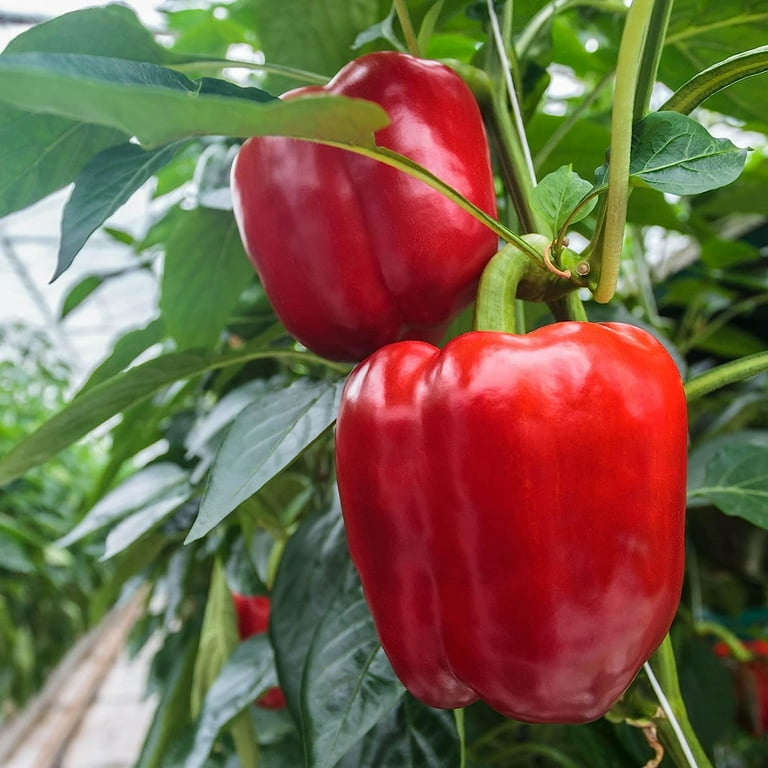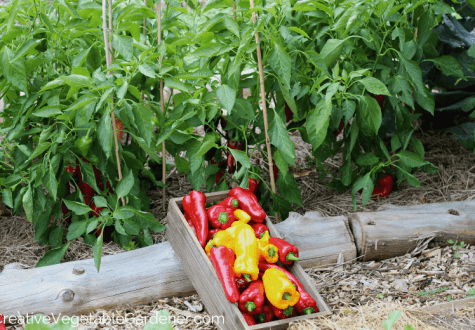Best Fertilizers for Peppers: Boost Growth and Taste Naturally
Best Fertilizers for Peppers: Boost Growth and Taste Naturally
Blog Article
The Ultimate Overview to Feeding Peppers: Enhancing Growth and Taste Naturally
As pepper fanatics seek to cultivate robust plants yielding tasty fruits, the role of fertilization comes to be paramount in accomplishing these objectives. The trip to understanding the elaborate equilibrium of nutrients that peppers need for optimum growth and taste is a nuanced one. By discovering the advantages of natural fertilizers, unlocking the secrets behind pepper plant nutrient needs, and diving right into the world of organic plant food alternatives, a world of opportunities arises for enhancing the vigor and flavor profile of these cherished plants. Remain tuned to uncover the vital practices and remedies that can elevate your pepper-growing endeavors to new elevations.
Advantages of Natural Fertilizers
Natural fertilizers provide a range of advantages that contribute to the general wellness and efficiency of pepper plants. By enriching the soil with natural issue, such as compost or manure, all-natural fertilizers improve its water retention capability and nutrient-holding capacities, developing a more hospitable environment for pepper plants to grow in.
Furthermore, all-natural fertilizers support a active and varied dirt microbiome, cultivating useful microbial activity that assists in nutrient recycling and uptake by the plants. This microbial task can help reduce dangerous pathogens and diseases, decreasing the requirement for chemical treatments. Additionally, all-natural plant foods advertise long-lasting soil health by maintaining a well balanced ecological community underground, which consequently supports the total health and wellness and resilience of pepper plants above ground.
Comprehending Pepper Plant Nutrient Requirements
Having established the advantages of natural fertilizers in enhancing soil health and wellness and promoting microbial task, the focus now changes to comprehending the specific nutrient needs crucial for ideal development and flavor in pepper plants.

Understanding the particular nutrient needs of pepper plants is crucial for achieving bountiful harvests with superb taste. By offering the best equilibrium of nutrients through organic fertilizers or soil amendments, growers can guarantee healthy and balanced, vigorous plants that create tasty peppers throughout the expanding season.
Organic Fertilizer Options for Peppers
In improving the development and taste of pepper plants, selecting the suitable organic fertilizers is an important consideration. Organic fertilizers use a lasting and natural method to nourish pepper plants without introducing hazardous chemicals to the soil and atmosphere. One prominent option is garden compost, which enriches the soil with important nutrients and boosts its structure, promoting healthy origin growth and general plant growth. In addition, compost aids retain wetness in the dirt, decreasing water stress and anxiety on pepper plants throughout hot climate.
One more effective organic fertilizer for peppers is aged manure. Rich in phosphorus, nitrogen, and potassium, aged manure offers a well balanced nutrient mix that supports vigorous growth and plentiful fruit production (best fertilizers for peppers). It is very important to use well-aged manure to protect against shedding the plants with excess ammonia
Fish solution is a fast-acting organic plant food that provides pepper plants with a fast increase of nutrients. Acquired from fish waste, this fertilizer is high in nitrogen, making it specifically beneficial throughout the early phases of pepper plant growth. Fish emulsion is simple to use and is readily soaked up by the plants, pop over to this site promoting healthy and balanced vegetation and strong root development.
When choosing a natural fertilizer for peppers, consider the specific nutrient requirements of your plants and select alternatives that align with your horticulture methods and worths.
Ideal Practices for Feeding Pepper Plants
Taking into consideration the significance of selecting proper organic plant foods for pepper plants, carrying out best practices for fertilization is necessary to make certain optimum growth and flavor advancement. One of the key best techniques for fertilizing pepper plants is to perform a dirt test prior to applying any kind of plant foods. This examination will certainly assist determine the details nutrient demands of the dirt and overview you in choosing the right kind and quantity of fertilizer. It is additionally essential to feed pepper plants at the correct time, generally prior to planting and throughout key development phases such as blooming and fruit advancement.
In addition, integrating natural matter into the dirt via compost or mulching can assist improve dirt structure, water retention, and vitamins and mineral accessibility, promoting healthier pepper plants with enhanced flavor profiles. By adhering to these ideal methods, you can efficiently nurture your pepper plants and accomplish plentiful harvests with superior preference and quality.
Troubleshooting Common Fertilization Issues

pH imbalance is one more problem that can affect nutrient uptake in pepper plants. When the soil pH is as well low or too high, specific nutrients end up being inaccessible to the plants. Routinely testing the soil pH and making modifications using organic amendments can assist maintain an ideal pH level for optimum plant growth. Irregular fertilization methods can lead to uneven growth and fruit advancement. Establishing a regular fertilization routine and adhering to recommended application prices can assist prevent this issue and guarantee healthy pepper plants throughout the expanding season.
Verdict
To conclude, making use of all-natural plant foods can dramatically boost the growth and flavor of pepper plants. By comprehending the nutrient needs of pepper plants and selecting natural plant food options, gardeners can effectively promote healthy and balanced and vigorous growth. Adhering to best methods for fertilizing pepper plants and repairing typical fertilizing problems can assist make certain effective farming of peppers. Generally, correct fertilization strategies are essential for making best use of the yield and quality of pepper plants.
By discovering the benefits of all-natural fertilizers, opening the secrets behind pepper plant nutrient needs, and diving into the world of organic plant food alternatives, a world of opportunities emerges for improving the vitality and her latest blog taste profile of these beloved plants.Fish emulsion is a fast-acting natural plant food that supplies pepper plants with a fast increase of nutrients. It is additionally essential to fertilize pepper plants at the right time, commonly before planting and throughout key growth phases such as flowering and fruit development.
By comprehending the nutrient requirements of pepper plants and choosing natural fertilizer options, gardeners can properly advertise healthy and strenuous growth. Following best practices for feeding pepper plants and troubleshooting common fertilizing issues can aid make sure successful farming of peppers.
Report this page